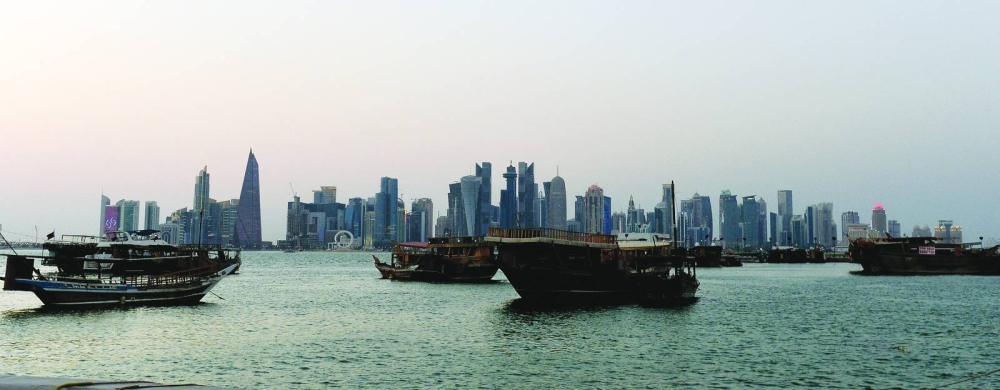Qatar’s retail inflation is now below 2%, its lowest level since April 2021 as the price pressures in the Middle East and North Africa (Mena) continue to moderate, according to Oxford Economics.
Highlighting that the (Mena) regional price pressures continue to moderate; its report said September CPI (consumer price index) data for Qatar showed inflation slowed to 1.8%, marking the lowest reading since April 2021.
"The housing and utilities category made a negative contribution for the first time since early 2022," the report said, forecasting Qatar’s inflation to be 2.6% this year and 2.3% in 2024 compared to as high as 5% in 2022.
Inflation also slid below 2% in Saudi Arabia, though higher oil prices contributed to inflation rising to 3.8% in Dubai, it said, adding in Kuwait, inflation remained sticky at 3.7%.
In 2023, the average inflation in the Gulf Cooperation Council is forecasted to be 2.6% with Bahrain at 0.2%, Kuwait at 3.4%, Oman at 1%, Saudi Arabia at 2.5% and the UAE at 2.9%; whereas the world inflation is expected to average higher at 6%.
In 2024, the average inflation in the Gulf region is expected to be 2.5% with Bahrain at 1.8%, Kuwait at 2.6%, Oman at 1.7%, Saudi Arabia at 2.7% and the UAE at 2.3%; while the world average was higher at 4.2%.
Oxford Economics said the GCC gross domestic product is slated to grow by 1.2% and 3.8% this year and in 2024 against 7.6% in 2022 with Bahrain at 1.7% and 1.9% (4.9%), Kuwait 1.6% and 2.1% (7%), Oman 2.5% and 2.3% (4.3%), Qatar 1.5% and 2.5% (4.4%), Saudi Arabia 0.4% and 4.3% (8.7%) and the UAE 2.2% and 4.4% (7.9%).
In the case of Mena region, the GDP growth is expected to average 1.8% and 3.1% in 2023 and 2024 respectively compared to 5.4% in 2022; and the world average is slated to be 2.5% and 1.9% (3.1%), the report said.
The Gulf region is expected to show a fiscal surplus of 1.7% of GDP in 2023 with Qatar's level at 6.8% and the UAE at 5%; whereas Bahrain, Kuwait, Saudi Arabia and Oman are expected to witness deficit of 1.6%, 1.4%, 1% and 0.3% respectively.
In 2024, the regional fiscal situation is slated to improve with the GCC surplus expected to be 2.9% with Qatar, the UAE and Saudi Arabia to show 8.5%, 5.4% and 0.5% respectively; while in the case of Kuwait, Bahrain and Oman, they are slated to see deficit of 2.4%, 1.6% and 0.2%.
Business
Qatar's inflation now at its lowest level since April 2021; Mena price pressures moderate: Oxford Economics

Qatar’s retail inflation is now below 2%, its lowest level since April 2021 as the price pressures in the Middle East and North Africa continue to moderate, according to Oxford Economics.

